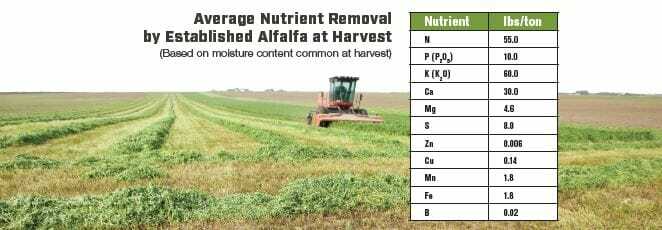Feed Your Crops to Maximize Yield
The official start of the grilling season is almost upon us! What’s better than grilling your favorite brats or hamburgers while listening to a game of baseball on a beautiful spring day?
With the season of good food upon us, it’s also time to feed your crops. Some farmers plan to reduce fertilizer rates or forgo advanced management practices, such as soil or tissue testing, to save money. I understand that margins are tight, but the short-term savings could cost more in the long run.
I want to encourage farmers to hang in there by offering a few strategies to help navigate tight budgets:
- Review the latest soil test reports;
- Study crop removal rates; and
- Strike the balance between cost and return on investment.
For example, alfalfa is coming off a super hard winter. Crown carbohydrate levels are going to be low. Supplemental potash, boron, and sulfur will help replenish crown reserves and prepare for next winter. If you only can afford one supplemental nutrient, consider potash.
The crown is like alfalfa’s gas tank; the roots are its supply hose; and foliage the energy source. More foliage above the ground helps harness more sun, which helps fill the gas tank. When foliage is removed, the plant takes stored carbohydrates from the root to rebuild the manufacturing plant. When the plant has potash and other vital nutrients, its gas tank fills faster.
More access to carbohydrates in the crown can be used to rebuild another cutting for more yield plus leave the gas tank fuller. Without adequate potash, the gas tank fills slower and even more stored carbohydrates are used. The plant becomes more vulnerable late in season.
Bottom Line: Reducing supplemental fertilizer can lower yields and increase winterkill potential. One way to potentially reduce the risk of winter kill during a reduced supplemental fertility year is not take the last cutting of the season to allow plants to build or manufacture as many carbohydrates as possible. Even if you don’t like the idea of one less cutting, it’s food for thought.
If you’re wondering how to best feed all your plants this season, feel free to call me. I’ll gladly talk through your options. I applaud farmers for their ingenuity. With grit and moxy, farmers do the best with what they have. We, at family-owned and independent Latham Hi-Tech Seeds, are here to help farmers protect their bottom line.
